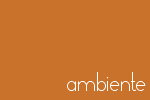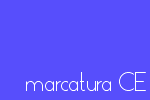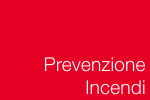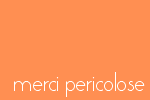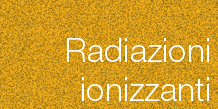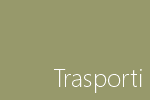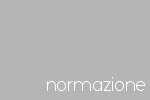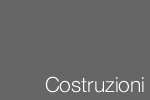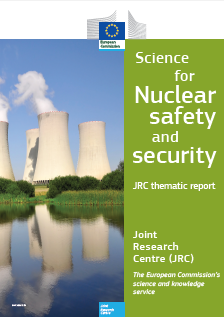Science for nuclear safety and security
This report provides a detailed overview of research on nuclear safety and security, including their policy background and context, as carried out by the Joint Research Centre (JRC), the European Commission’s science and knowledge service. Organised in five chapters, the report describes relevant scientific output in nuclear safety; nuclear security; reference measurements, materials and standards; nuclear knowledge management, training and education and, in the last chapter, innovation.
In the European Union around 27% of electricity is produced by nuclear energy. Nuclear energy plays a fundamental role in the EU for it to meet its own targets to cut greenhouse gas emissions and to ensure its energy security. The choice to use nuclear power or not in the energy mix of each of the 28 EU Member States is a national decision and currently the situation diff ers signifi cantly amongst them. Today, there are 14 countries in the EU operating over 130 reactors, two of which have clear phasing out policies, and four that are investing in new-builds.
Since 1957, the Euratom Treaty has foreseen a clear role for the EU in ensuring the safe and sustainable use of nuclear energy across Europe and helping the Member states meet the highest standards of safety, security and non-proliferation. Through the Joint Research Centre (JRC), the European Commission’s in-house science service, the EU provides both direct research and policy support for nuclear safety and security issues, next to its scientifi c and technical expertise in other domains such as Economic and Monetary Union, public health and safety, or agriculture and global food security. It also tackles many societal challenges such as climate change, energy security or socio-economic inequality and therefore also strives to contribute to growth, jobs, innovation and a lowcarbon economy. In addition, the JRC scientifi c support to EU policymaking benefi ts from its interdisciplinarity.
In the nuclear area it fulfi ls the research obligations of the Euratom Treaty. For over 50 years the JRC has been conducting direct research in the nuclear fi eld and has been providing expertise to complement the training and education eff orts of the Member States. JRC activities support the need for nuclear safety, security research and cross-cutting activities, in order to ensure that top-level competence and expertise for nuclear safety assessments are available in the EU.
The JRC, for example, carries out research in the fi eld of nuclear fuel safety. This research area focuses on fuel behaviour under harsh reactor conditions. The JRC also deals with pre-normative research on nuclear structural materials, resulting in codes and standards, novel test techniques and advanced inspection procedures. Another area of expertise is the development of nuclear reference materials, standards and measurements for benchmarks to control environmental radioactivity measurements
and to check conformity assessments.
The JRC works very closely with the EU Member States, both to maximise synergies and to provide a knowledge pool for nuclear stakeholders. In the context of its policy support role, the JRC contributes to the solutions for Europe’s longer-term energy challenges, as well as helping to address citizens’ concerns about current nuclear technology, in particular
safety and security and waste management. For example, the JRC assists Member States in gathering feedback on operational experiences in the nuclear fi eld and supports the exchange of radiological environmental monitoring.
The JRC also has a signifi cant policy support role in the EU, for instance by coordinating an EU action plan on chemical, biological, radiological and nuclear security, aiming to
reduce the threat of such incidents, including terrorist acts.
The JRC has several strategic international agreements and cooperates with international organisations and partners such as the International Atomic Energy Agency (IAEA), the Nuclear Energy Agency of the Organisation of Economic Cooperation and Development (OECD/NEA), the US Department of Energy and third countries, such as Japan, Canada, China. In addition, the JRC is the Euratom implementing agent within the framework of the Generation IV International Forum.
This publication highlights the JRC activities in the nuclear research fi eld and I hope that it will help the reader understand the need for solid science to meet global nuclear safety and security challenges and the JRC’s role, which builds on our worldwide recognised expertise in this area.
___
JRC activities in this area provide scientifi c support to the following policy initiatives:
- Treaty establishing the European Atomic Energy Community (Euratom Treaty) - 1957
- Regulation 733/2008/EC of 15 July 2008 on the conditions governing imports of agricultural products originating in third countries following the accident at the Chernobyl nuclear power station
- Regulation 1048/2009/EC of 23 October 2009 on imports amending Regulation (EC) no 733/2008
- Regulation (Euratom) No 300/2007 of 19 February 2007 establishing an Instrument for Nuclear Safety Cooperation
- Regulation (Euratom) no 3954/87 of 22 December 1987 on maximum permitted levels of radioactive contamination of foodstuffs
- Regulation (EU) No 540/2010 of 16 June 2010 amending Council Regulation (EC) No 1085/2006 establishing an Instrument for Pre-Accession Assistance (IPA)
- Regulation (EC) No 1085/2006 of 17 July 2006 establishing an Instrument for Pre-Accession Assistance (IPA)
- Directive 2013/51/Euratom of 22 October 2013 laying down requirements for the protection of the health of the general public with regard to radioactive substances in water intended for human consumption JRC hot cells facility for the study of the nuclear fuel safety.
- Directive 2013/59/Euratom of 5 December 2013 laying down basic safety standards for protection against dangers arising from exposure to ionising radiation, and repealing Directives 89/618/Euratom, 90/641/Euratom, 96/29/Euratom and 2003/122/Euratom
- Directive 2011/70/Euratom of 19 July 2011 establishing a Community framework for the responsible and safe management of spent fuel and radioactive waste
- Directive 98/83/EC of 3 November 1998 on the quality of water intended for human consumptionDirective 2009/71/Euratom of 25 June 2009 establishing a Community framework for the nuclear safety of nuclear installations
- Decision 87/600 of 14 December 1987 on Community arrangements for the early exchange of information in the event of a radiological emergency
- Recommendation 2000/473/Euratom of 8 June 2000 on the application of article 36 of the Euratom Treaty concerning the monitoring of the levels of radioactivity in the environment for the purpose of assessing the exposure of the population as a whole
- Conclusions of the European Council of 24 and 25 March 2011 on the mandate for the stress tests, EUCO 10/1/11
- Advanced fuel cycle options: Strategic Research and Innovation Agenda (SRIA) of the SNETP
- Geological disposal of High-Level Waste: Strategic Research Agenda of the IGD-TP (Implementing Geological Disposal of Radioactive Waste Technology Platform)
JRC thematic report




